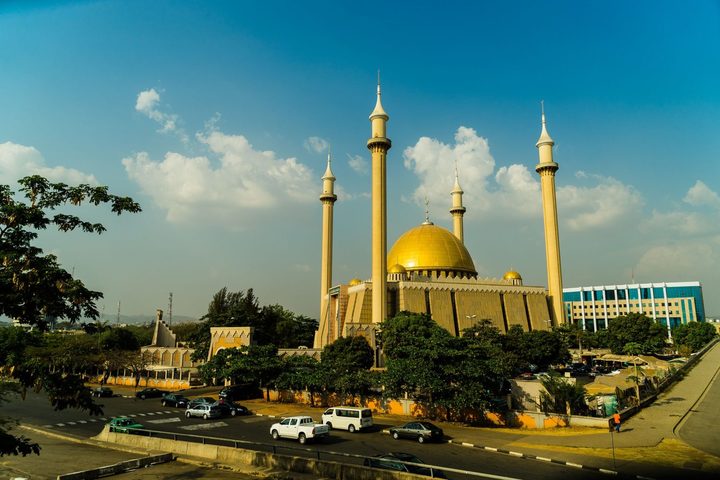Forums » News and Announcements
nigeria giant of Africa
-
Nigeria is often referred to as the “Giant of Africa”, and with good reason. With a population of about 200 million it is the seventh most populous country in the world. It also has the third largest youth population. These young people are doing it all from starting tech businesses, to making music, to writing books. Of course you know that Africa is not a country, but how much do you know about each of the countries that make up the continent? Nigeria Giant of Africa; is a great place to start with.
Now, if you watch the video above, you won’t need to read the details in the rest of this article. The video also features the Afro-House fusion dance record “Ijo (Dance)” by Wyll Diamond.
Nigeria: Basic Facts
Official name: Federal Republic of Nigeria
Other names: Giant of Africa
Capital: Abuja
Independence date: October 1, 1960
Official languages: Nigerian English
Currency: Naira (₦) (NGN)Former colonizer:Great Britain
Country population: 201 million (2019 estimate)
Current leadership: President Muhammadu Buhari assumed office May 29, 2015
Major ethnic groups: Hausa, Igbo and Yoruba
Major religions followed: Christianity and IslamMajor cities:
- Lagos
- Kano
- Ibadan
- Benin City
- Port Harcourt
A Brief History
Colonization dates:
- August 1861 – Britain annexed Lagos as a Crown Colony with the Lagos Treaty of Cession
- January 1, 1901 – Nigeria became a British protectorate, and part of the British Empire
International Organization Memberships:
- African Union (founding member)
- United Nations
- Commonwealth of Nations
- OPEC
Tourism
Nigeria: Giant of Africa is a giant in terms of its rainforests and savannah stretches that it features across its terrain.Where the rest of the world is battling to conserve their natural reserve amidst the pollution and exploitation, Nigeria is still giving its best efforts and the results are not disappointing.It is the 6th out of seventeen most biodiverse regions of the world. These forests are home to a diversified flora and fauna. It ranks as the 10th most diversified flora rich region of the world. Apart from this the country ranks third in the richest marine biodiversity genre.
This country is also a hub of ethnicity. It houses some of the oldest and most ethnic tribal and cultural groups of the world. These groups are known for their nature friendly practices and minimalism inspired livelihood. Despite living in the wild, they are one of the most resistant to diseases. Many explorers have visited these groups to learn about their rituals and culture that promote a healthy lifestyle.
The ethnic Education
To ensure that the new generation adults do not forget their roots, children are given training on their ethnicity and culture. They are taught how to live in harmony with nature. Though the training might seem to be a bit harsh, the child grows up to be fully independent adult who has the requisite skills to earn his own livelihood. They are trained in skills such as weaving, carpentry and much more. Though employment rate is challenged throughout the globe and Nigeria being no exception to it, yet indigenous people manage to fill their tummies pertaining to the initial training they have received.
Economics:
20th largest economy as of 2015, worth more than $500 billion and $1 trillion in terms of nominal GDP and purchasing power parity
Wars and conflicts
- Ekumeku War (1883–1914) was a series of uprisings against the rising power of the Royal Niger Company of the British Empire in Anioma, the Igbo subgroup in present day Delta State. Although the Ekumeku failed in 1914, but the western Anioma treasure their memory as imperishable legacy. Heroes included DunkwuIsus of Onicha-Olona, NwabuzoIyogolo of Ogwashi-Ukwu, AwunoUgbo, Obi of Akumazi, AgbambuOshue of Igbuzo, Idabor of Issele-Ukwu, OcheiAghaeze of Onicha-Olona, Abuzu of Idumuje-Unor, IdegwuOtokpoike of Ubulu-Ukwu are still remembered in Anioma land. The Ekumeku War is one of the most vigorous campaign of opposition to the British empire and inspired later rebellions such as the Mau Mau of Kenya.
- The Anglo–Aro War (1901–1902) was a conflict between the Aro Confederacy in present-day Eastern Nigeria, and the British Empire. Some of the Aro leaders, like OkoroToti, were arrested, tried by tribunals, and hanged. The Aro Confederacy was destroyed and EzeKanuOkoro (king of Arochukwu), went into hiding but was later arrested.
- Aba Women’s Riots of November 1929 – Igbo women protested and accused Warrant Chiefs of restricting the role of women in the government.
- Civil war (1967–1970) – “The disequilibrium and perceived corruption of the electoral and political process led, in 1966, to back-to-back military coups. In May 1967, the Southern Region declared independence as a state called the Republic of Biafra, under the leadership of Lt. Colonel EmekaOjukwu.[64] The Nigerian Civil War began as the official Nigerian government side attacked Biafra on 6 July 1967 at Garkem. The 30-month war, with a long siege of Biafra and its isolation from trade and supplies, ended in January 1970.[65] Estimates of the number of dead in the former Eastern Region are between 1 and 3 million people, from warfare, disease, and starvation, during the 30-month civil war.”
Some Trivia
- Most populous country in Africa (as of 2019)
- Seventh most populous country in the world (as of 2019)
- Third-largest youth population in the world, after India and China, with more than 90 million of its population under age 18
- Over 250 ethnic groups
- Nigeria is the 12th largest producer of petroleum in the world and the 8th largest exporter, and has the 10th largest proven reserves. (The country joined OPEC in 1971.) Petroleum plays a large role in the Nigerian economy, accounting for 40% of GDP and 80% of Government earnings.
- Prebendalism refers to political systems where elected officials and government workers feel they have a right to a share of government revenues, and use them to benefit their supporters, co-religionists and members of their ethnic group.

